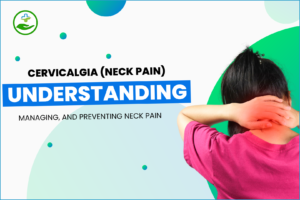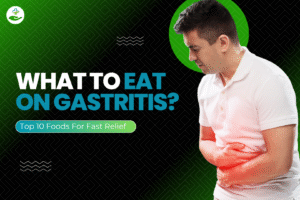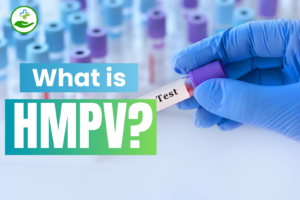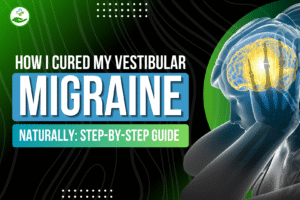Hypertension, commonly known as high blood pressure, is a chronic medical condition that affects millions worldwide. Often called the “silent killer,” it can go unnoticed for years but silently damages blood vessels and vital organs.
Understanding its symptoms, causes, and treatment options is essential to protect your heart health and overall well-being.
What Is Hypertension (High Blood Pressure)?
Hypertension is a condition in which the force of the blood against artery walls is consistently too high. It’s diagnosed when blood pressure readings are:
- Normal: Below 120/80 mmHg
- Elevated: Systolic between 120-129 and diastolic less than 80
- Stage 1 Hypertension: Systolic between 130-139 or diastolic between 80-89
- Stage 2 Hypertension: Systolic 140 or higher or diastolic 90 or higher
👉 In some cases, back pain may be an early warning sign of a serious condition like a heart attack—learn more about the connection between back pain and heart attack here.
Types Of Hypertension
Primary (Essential) Hypertension
Primary hypertension is the most common form of high blood pressure, affecting nearly 90–95% of individuals diagnosed with hypertension.
It develops gradually over many years and typically has no clear underlying medical cause. However, a combination of genetic and lifestyle factors contributes to its development, including:
- Family history of hypertension
- High salt (sodium) intake
- Obesity or being overweight
- Sedentary lifestyle
- Chronic stress
- Aging and vascular stiffness
Even without symptoms, primary hypertension can silently damage your organs over time if left uncontrolled.
Secondary Hypertension
Secondary hypertension is less common but usually more severe than primary hypertension. It occurs suddenly and is linked to a specific underlying condition or medication. Once the root cause is treated, blood pressure may return to normal. Causes of secondary hypertension include:
- Chronic kidney disease
- Thyroid disorders (hypothyroidism or hyperthyroidism)
- Adrenal gland tumors (e.g., pheochromocytoma, Cushing’s syndrome)
- Congenital heart or blood vessel defects
- Obstructive sleep apnea
- Certain medications, such as:
- Oral contraceptives
- Decongestants
- Non-steroidal anti-inflammatory drugs (NSAIDs)
- Steroids
- Alcohol abuse or drug use (e.g., cocaine)
Identifying and treating the root cause is crucial for effective management of secondary hypertension.
Common Symptoms Of Hypertension
Most people with high blood pressure experience no symptoms. However, advanced or severe hypertension may lead to:
- Headaches
- Shortness of breath
- Nosebleeds
- Chest pain
- Dizziness or fatigue
- Blurred vision
When To Seek Medical Help
Seek immediate medical attention if you experience symptoms like chest pain, shortness of breath, or sudden changes in vision—these may indicate a hypertensive crisis.
Causes And Risk Factors Of Hypertension
Lifestyle-Related Causes:
- Excessive salt intake
- Sedentary lifestyle
- Tobacco use
- Excessive alcohol consumption
Medical & Genetic Factors:
- Kidney disease
- Thyroid or adrenal disorders
- Family history of hypertension
- Age (risk increases with age)
Who Is At Higher Risk?
- People over 60
- Overweight or obese individuals
- Those with a sedentary lifestyle
- Individuals with a family history of high blood pressure
Diagnosis And Monitoring
Early diagnosis and consistent monitoring are key to managing hypertension effectively and preventing long-term complications. Since high blood pressure often has no symptoms, regular screening is essential—especially for those at risk.
How is Hypertension Diagnosed?
Hypertension is typically diagnosed using a blood pressure monitor (sphygmomanometer), either at a clinic or with a home device.
A healthcare provider takes multiple readings on different days to confirm elevated blood pressure. A single high reading is not enough for diagnosis.
- Normal: Less than 120/80 mmHg
- Elevated: 120–129 systolic and < 80 diastolic
- Stage 1 Hypertension: 130–139 systolic or 80–89 diastolic
- Stage 2 Hypertension: ≥ 140 systolic or ≥ 90 diastolic
If readings remain consistently elevated, your doctor may recommend additional tests to determine if there is an underlying cause or organ damage.
Diagnostic Tests May Include:
- Ambulatory Blood Pressure Monitoring (24-hour BP test for accurate assessment)
- Blood tests (to check kidney function, blood sugar, cholesterol levels)
- Urinalysis (to detect kidney issues)
- Electrocardiogram (ECG) (to evaluate heart rhythm)
- Echocardiogram (to assess heart size and function)
Understanding BP Readings
- Systolic Pressure: The top number, measures pressure when your heart beats.
- Diastolic Pressure: The bottom number, measures pressure when your heart is at rest between beats.
Why Regular Monitoring Matters
Consistently checking your blood pressure helps:
- Detect hypertension early
- Track effectiveness of treatment
- Prevent complications like stroke or heart failure
- Encourage adherence to lifestyle changes and medications
Tip: Measure your blood pressure at the same time each day, in a calm state, and avoid caffeine or exercise 30 minutes before testing.
Treatment Options For Hypertension
Lifestyle Changes
- Exercise: Aim for 30 minutes of moderate exercise most days
- Diet: Adopt the DASH diet rich in fruits, vegetables, and low-fat dairy
- Limit Salt: Reduce sodium intake
- Stress Management: Yoga, meditation, or deep breathing
Medications For Hypertension
- Diuretics: Help remove excess sodium and water
- ACE Inhibitors: Help relax blood vessels
- Beta-blockers: Reduce heart rate
- Calcium Channel Blockers: Prevent calcium from entering heart cells
- ARBs: Block angiotensin to relax blood vessels
How To Prevent Hypertension (High Blood Pressure)
- Maintain a healthy weight
- Limit alcohol and avoid smoking
- Eat a balanced, low-sodium diet
- Stay physically active
- Manage stress effectively
- Monitor blood pressure regularly
Heart-Healthy Habits That Work
- Meal planning with less salt
- Regular walks or home workouts
- Mindfulness or journaling
Complications If Hypertension Is Left Untreated
- Stroke
- Heart attack or heart failure
- Kidney failure
- Vision loss
- Aneurysm
Why Early Intervention Saves Lives
Proper treatment can significantly reduce the risk of life-threatening complications.
Hypertension In Special Populations
- Pregnancy: Can lead to preeclampsia
- Children & Teens: Increasingly common due to obesity
- Older Adults: Require cautious monitoring due to other co-morbidities
Conclusion
Hypertension (High Blood Pressure) may be silent, but its impact is loud and serious. Regular screenings, healthy habits, and timely medical advice can make all the difference. Don’t wait—take charge of your heart health today.
FAQs on Hypertension (High Blood Pressure)
Q1. Is high blood pressure curable?
Ans: While not always curable, it is highly manageable with treatment.
Q2. Can I manage hypertension without medication?
Ans: Yes, through lifestyle changes, especially in early stages.
Q3. What is the best time to check blood pressure?
Ans: Morning and evening before eating or taking medication.
Q4. How often should I get screened?
Ans: At least once a year, more often if you have risk factors.
Q5. Can I control high blood pressure without medication?
Ans: Yes. Many people manage mild hypertension through diet, regular exercise, weight loss, stress management, and limiting salt and alcohol. However, some may still need medication depending on their condition.







